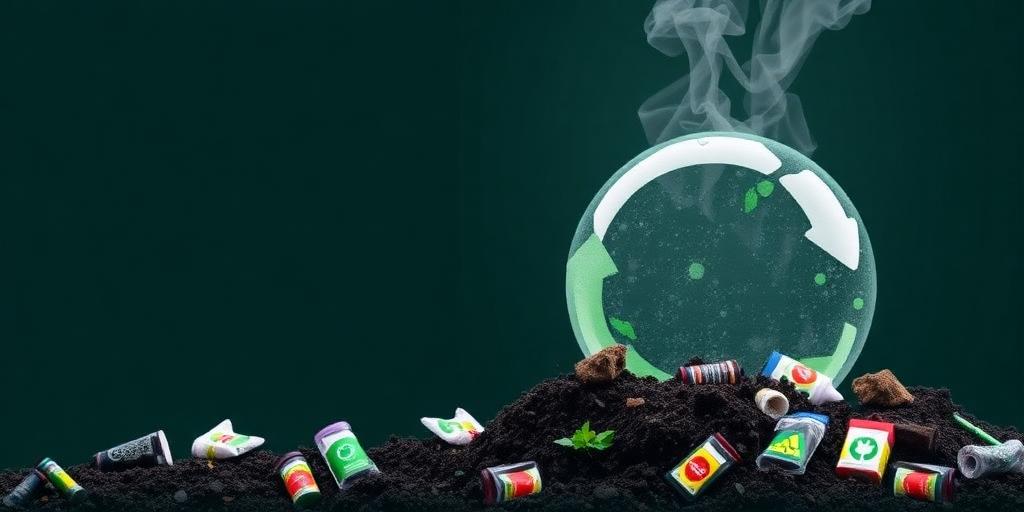Sarkari Yojana for Waste Management and Recycling in 2025: A Comprehensive Overview
As India continues its rapid urbanization and economic growth, the effective management of waste has become a critical imperative. Recognizing this challenge, the Indian government has consistently launched initiatives aimed at streamlining waste management and promoting recycling. Looking ahead to 2025, a robust framework of 'Sarkari Yojana' (Government Schemes) is expected to be in place, designed to address the multifaceted issues within the waste management sector. This article provides an authoritative overview of the anticipated schemes, their objectives, and potential impact.
Current Landscape and Policy Framework
Before delving into the specifics of the upcoming schemes, it's essential to understand the existing policy framework. The Solid Waste Management Rules, 2016, form the bedrock of India's approach to waste management. These rules emphasize:
- Waste Segregation at Source: Mandating households and institutions to segregate waste into wet, dry, and hazardous categories.
- Decentralized Waste Processing: Promoting the establishment of composting and recycling facilities at the local level.
- Waste-to-Energy Conversion: Encouraging the use of waste as a resource through energy generation.
- Extended Producer Responsibility (EPR): Holding producers responsible for the collection and recycling of their packaging waste.
These rules lay the groundwork for the 'Sarkari Yojana' expected in 2025, which will likely build upon these principles to achieve more ambitious targets.
Anticipated Key Schemes in 2025
While the exact details of the 2025 schemes are subject to official announcements, several key areas are expected to be prioritized:
- National Waste Recycling Program (NWRP): This scheme will likely focus on incentivizing recycling across various sectors. Key components may include:
- Subsidies and Tax Benefits: Offering financial incentives for establishing and operating recycling plants.
- Technology Upgradation Fund: Providing support for the adoption of advanced recycling technologies.
- Awareness Campaigns: Launching nationwide campaigns to promote the benefits of recycling and encourage public participation.
- Urban Waste Management Infrastructure Development Scheme (UWMIDS): With urban centers generating a significant portion of the nation's waste, this scheme will likely concentrate on improving waste management infrastructure in cities. Expected measures include:
- Financial Assistance to Municipalities: Providing grants for the construction of waste processing facilities, landfills, and collection systems.
- Public-Private Partnerships (PPP): Encouraging private sector involvement in waste management projects through PPP models.
- Capacity Building: Training municipal staff on best practices in waste management.
- Rural Waste Management Program (RWMP): Addressing the unique challenges of waste management in rural areas, this scheme is expected to focus on:
- Decentralized Waste Treatment: Promoting composting, vermicomposting, and biogas plants at the village level.
- Community Participation: Engaging local communities in waste management initiatives through self-help groups and awareness programs.
- Sanitation Infrastructure: Improving sanitation facilities in rural areas to reduce open defecation and promote hygiene.
- Plastic Waste Management Initiative (PWMI): Given the environmental impact of plastic waste, this scheme will likely intensify efforts to manage plastic waste effectively. Anticipated strategies include:
- Stricter Enforcement of EPR: Ensuring that producers meet their EPR obligations for plastic waste collection and recycling.
- Promotion of Alternative Materials: Encouraging the use of biodegradable and compostable alternatives to plastic.
- Plastic Waste Recycling Technologies: Supporting the development and deployment of technologies for recycling plastic waste into valuable products.
Potential Impact and Challenges
The successful implementation of these 'Sarkari Yojana' has the potential to significantly transform India's waste management landscape. Expected benefits include:
- Reduced Landfill Burden: Increased recycling and waste processing will divert waste from landfills, extending their lifespan and reducing environmental pollution.
- Resource Conservation: Recycling will conserve valuable natural resources by reducing the need for virgin materials.
- Job Creation: The waste management and recycling sector will generate employment opportunities for skilled and unskilled workers.
- Improved Public Health: Effective waste management will reduce the spread of diseases and improve overall public health.
However, several challenges need to be addressed to ensure the success of these schemes:
- Effective Implementation: Ensuring that the schemes are implemented effectively at the ground level, with proper monitoring and accountability.
- Financial Resources: Allocating sufficient financial resources to support the schemes and ensure their long-term sustainability.
- Public Awareness: Raising public awareness about the importance of waste management and encouraging citizen participation.
- Technological Innovation: Promoting the development and adoption of innovative waste management technologies.
Conclusion
The 'Sarkari Yojana' for waste management and recycling in 2025 represent a crucial step towards creating a cleaner, healthier, and more sustainable India. By prioritizing waste segregation, recycling, and infrastructure development, these schemes have the potential to transform the way India manages its waste. However, their success will depend on effective implementation, adequate financial resources, public awareness, and technological innovation. By addressing these challenges, India can pave the way for a future where waste is viewed as a resource, contributing to a circular economy and a better quality of life for all its citizens.









